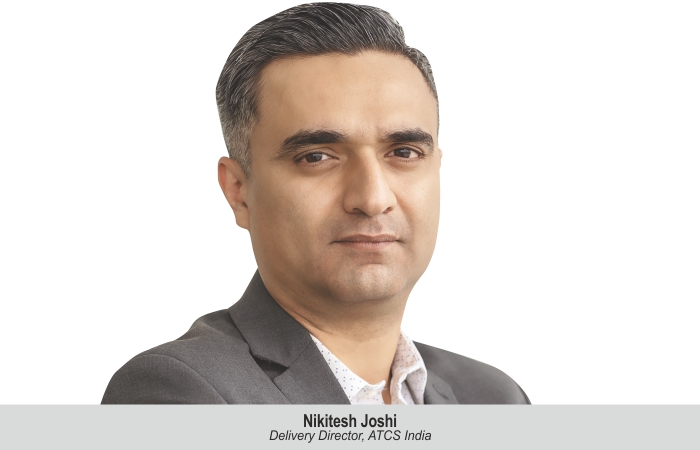While technology has had a transforming impact on tourism, its uptake will vary across different operators. The large and financially enterprises are rapidly adopting and leveraging the benefits of technology, and the traditional micro and small businesses are yet to adapt to the change. Nikitesh Joshi, Delivery Director, ATCS India, shares his perspective.
The tourism industry is slowly reviving from the screeching halt imposed by the outbreak of COVID-19. The government has been trying to pull the segment by announcing several relief packages. It has announced financial support to more than 11,000 registered tourist guides/travel and tourism stakeholders across the country. This package would give financial stability to small and medium-sized travel agents and tour operators. However, they would continue to face challenges as the segment is grappling with the adoption of emerging technologies.
The application of digital technologies has been transforming our lives and the tourism sector is no exception. However, the scope and uptake of digital technologies vary across different operators. While the large and financially-strong enterprises are rapidly adopting and leveraging its benefits, traditional micro and small businesses are yet to adapt to the change. The SMEs face an uneven playing field.
Challenges SMEs face
SMEs and traditional tour operators are unable to progress rapidly. Some primary challenges faced by the SMEs are demand-supply disequilibrium, lack of skilled human resources and frequent changes in policy guidelines. The tourism sector is turning digital rapidly; the customer no longer consults his nearest tour operator to plan his trip. They try to find the solution digitally! Small and medium tour and travel operators have limited or no digital presence, and hence, they can’t cater to this demand and lag behind.
The small and medium operators are generally family-run businesses that operate traditionally. Another hindrance is the rapidly changing policy guidelines. With their digital handicap, they cannot educate consumers about the developments, and hence, lose business.
Tech can pave the way
Digital marketing and e-commerce can facilitate the local tour operators in spreading their reach. They can capture new markets, engage customers and build a brand for their business. While building a dedicated website or application might be too much to ask for from a small and medium tour operator, they can explore the possibility of tie-ups with travel aggregators who can display their services on their websites.
With the penetration of the internet in the remotest location of the country, small tour operators can use social media to promote their service with no (or limited) costs involved. They can get in an agreement with travel aggregators to expand their reach. Further, they can accept digital payment instead of cash.
While these technologies facilitate market access and awareness, develop reach and help with financial transactions, they are less effective in improving productivity or variation in a competitive global marketplace. Innovative technologies (e.g. augmented reality, geo-tagging) and productivity-enhancing technologies (e.g. cloud computing, data analytics, revenue management software) can help small businesses scale up operations and match the standard of services offered by travel corporations.
Productivity-enhancing technologies have not been a popular choice in the tourism industry. However, these technologies can help in understanding and developing market trends. Revenue management software can help small businesses in remodelling the financial structure of their organisation. The tour operators can prioritise necessary costs while ignoring unnecessary expenses that have been incurred traditionally.
Travellers always wanted to explore the unexplored and feel the adrenaline rush. Innovative technologies facilitate that experience. Tour operators can use these advancements in generating, customising and delivering new visitor products and experiences that will continue to attract customers.
SME tour operators need to upskill themselves and upgrade their services based on the insights gathered with the help of new technologies to emerge out of the shadow of large enterprises that are eating away their businesses. While this is easier said than done, the process must start now to make the most of the supportive government initiatives and the renewed interest of travellers.
 TravTalk India Online Magazine
TravTalk India Online Magazine





